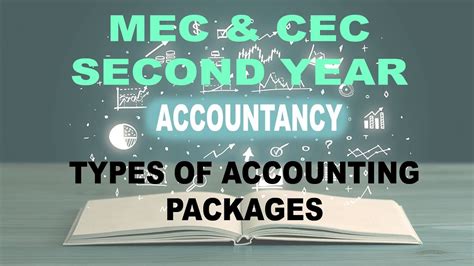What is an Accounting Package

What is an Accounting Package?

An accounting package is a software program designed to manage and automate various aspects of accounting and financial operations for businesses, organizations, and individuals. It is a comprehensive tool that integrates multiple accounting functions into one system, providing users with a streamlined and efficient way to handle financial transactions, manage accounts, and generate reports.
Key Features of an Accounting Package

A typical accounting package includes the following key features:
- General Ledger: A centralized database that stores all financial transactions, accounts, and balances.
- Accounts Payable: Manages vendor invoices, payments, and credits.
- Accounts Receivable: Tracks customer invoices, payments, and credits.
- Invoicing and Billing: Generates invoices, credit memos, and debit memos.
- Inventory Management: Tracks inventory levels, costs, and valuation.
- Payroll Processing: Manages employee salaries, benefits, and taxes.
- Financial Reporting: Generates financial statements, such as balance sheets, income statements, and cash flow statements.
- Budgeting and Forecasting: Allows users to create and manage budgets, forecasts, and financial projections.
- Multi-Company and Multi-Currency Support: Supports multiple companies and currencies, making it ideal for global businesses.
- Security and Access Control: Provides user authentication, authorization, and access control to ensure data security and integrity.
Benefits of Using an Accounting Package

Using an accounting package can bring numerous benefits to businesses, including:
- Improved Efficiency: Automates routine accounting tasks, reducing manual errors and increasing productivity.
- Enhanced Accuracy: Provides accurate and up-to-date financial information, enabling better decision-making.
- Increased Transparency: Offers real-time visibility into financial performance, allowing for timely interventions and adjustments.
- Compliance and Regulatory Adherence: Ensures compliance with accounting standards, tax laws, and regulatory requirements.
- Cost Savings: Reduces labor costs, minimizes errors, and optimizes financial resources.
Types of Accounting Packages

Accounting packages can be categorized into several types, including:
- Cloud-Based Accounting Software: Hosted online, accessible via web browsers, and scalable to meet growing business needs.
- On-Premise Accounting Software: Installed on local servers, providing control over data and security.
- Hybrid Accounting Software: Combines cloud-based and on-premise solutions, offering flexibility and customization.
Popular Accounting Packages

Some popular accounting packages include:
- QuickBooks: A comprehensive accounting solution for small to medium-sized businesses.
- Xero: A cloud-based accounting platform designed for small businesses and accountants.
- SAP: A robust enterprise resource planning (ERP) system that includes accounting and financial management modules.
- Microsoft Dynamics: A suite of business applications that includes accounting and financial management capabilities.
📝 Note: The choice of accounting package depends on the specific needs and requirements of the business, including the size, industry, and complexity of financial operations.
Conclusion

In summary, an accounting package is a powerful tool that helps businesses manage their financial operations efficiently and effectively. By automating routine tasks, providing real-time visibility, and ensuring compliance with regulatory requirements, accounting packages can bring significant benefits to businesses of all sizes. When selecting an accounting package, it is essential to consider factors such as scalability, customization, and user support to ensure a smooth implementation and optimal usage.
What is the main purpose of an accounting package?

+
The main purpose of an accounting package is to manage and automate various aspects of accounting and financial operations for businesses, organizations, and individuals.
What are the key features of an accounting package?

+
The key features of an accounting package include general ledger, accounts payable, accounts receivable, invoicing and billing, inventory management, payroll processing, financial reporting, budgeting and forecasting, multi-company and multi-currency support, and security and access control.
What are the benefits of using an accounting package?

+
The benefits of using an accounting package include improved efficiency, enhanced accuracy, increased transparency, compliance and regulatory adherence, and cost savings.
Related Terms:
- Accounting packages examples
- Accounting packages pdf
- Accounting packages in computer
- Features of accounting packages
- Top 10 accounting software
- 5 types of accounting software



